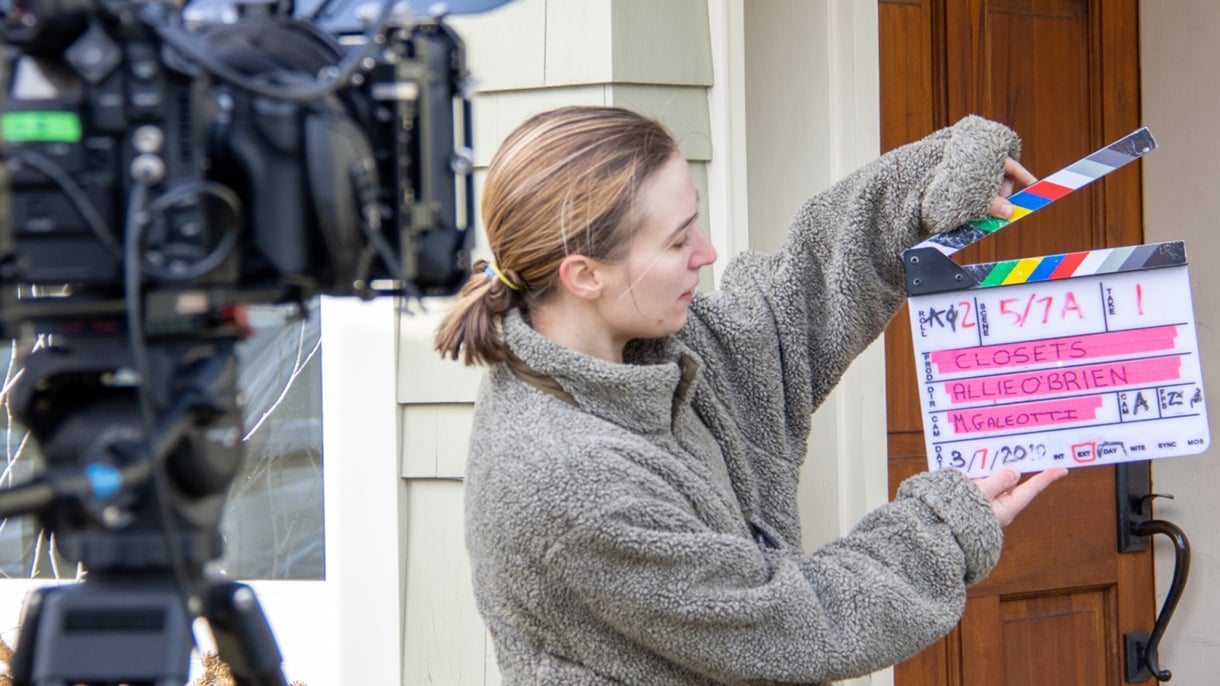If you’ve been considering a master’s in film and television, you might be asking yourself––especially in a year like this one––if it’s the right move. You might want to bring your visual storytelling to the next level with an MA or MFA, but is now the right time?
We asked our Sacred Heart faculty members from our film & television master’s program (FTMA) to share their thoughts on the impacts of recent events on the field as well as where aspiring filmmakers are finding a space in our current world.
SHOULD I GET A FILM & TV MASTER’S IN 2021?
Two SHU professors––James “Todd” Barnes and Sara “Sally” Ross––answered this very question and chatted with us about the hope and change that creators can bring about, especially in such a time as this.
Read on for some inspiration as they answer the questions: “why a film & TV master’s?” and “why now?”
Is a Film & Television Master’s Relevant in Today’s World?
While formats and distribution methods are changing rapidly, moving images remain the most vital way to tell stories in our culture. This past year has reminded us how much we need creative and well-trained visual storytellers. Feature films, documentaries and scripted television help us to find unity and hope, raise up the voices of those whose stories need to be told or just escape our troubles for a while. We're also finding that new immersive media such as VR/AR/XR are not just for gaming anymore. Immersive storytelling using these new technologies can produce powerfully emotional stories that are an incredible tool for generating empathy. There are also myriad emerging ways to tell short form stories online that our students are also exploring.
– Sally Ross, PhD, Media & Theatre Arts Department Chair
Our program couldn't be more relevant to current events. In terms of the pandemic, we saw a major pause in our industry. Many––if not most––of the jobs were lost or furloughed, but the demand for streaming content has stayed the same. I expect those jobs to come back like a tidal wave. We've seen the waters recede on the job front, but many of the previous holders of those jobs have moved on. Now that it's all coming back the industry will have to fill those jobs with different people.
In terms of social justice and the politics of the moment, we are equipped to be at the forefront of both representation and message as our students make films from their diverse experiences. [Current events] have opened many eyes to issues of representation both on film and behind the camera. Producers are hiring more diverse crews and film festivals are taking more diverse content.
– Todd Barnes, FTMA Artistic Director
How Has the Pandemic Changed the Field of Film & Television?
SR – The pandemic forced the industry to change many things in terms of how they produce and distribute media. Some of these may 'go back to normal,' but others have shifted how we think about where and when we are willing to pay for content. Change means opportunity, especially for people who are just entering the field! Changing technologies for production and distribution also mean that this is a good time to be sure that your skill set is up-to-date.
What Inspires Film & TV Students at SHU to Work in the Field?
SR – Along with creativity, knowledge, and skills, one of the things that you need to thrive in film and television is a network of connections who know you and are eager to work with you. The problem with this is that it can lead to a 'good old boy' mentality in film and television production. We are building our own network of fresh and diverse new voices in visual storytelling. It's the perfect time for us, because the industry is waking up to the need to hear from new talent.
TB – The field of work for FTMA graduates widens every year. Whereas 20 years ago, a film and television graduate student would hope to become a feature film director. Maybe TV. Possibly :30 second commercials. Now there are thousands of places to explore your talents. Our students have moved to LA to join the traditional industry, worked crew in Brooklyn, started a production company in Fairfield and more. We prepare students to work in all aspects of the field from crew to creative and everything in between.
Why Should Someone Pursue Film Production in 2021?
TB – Ever get the feeling you're not doing enough with your life? I think everyone probably had that thought during the pandemic at one stage or two. What better way to scratch that itch than to become a film director, writer and producer? You want to spend your time doing something you care about deeply? Making movies is that thing for a lot of wonderful people at FTMA.
SR – We've all had reason to reflect on our priorities this year, and many of us have come to the conclusion that life is too short to do a job that doesn't fulfill our creative potential!
ARE YOU READY TO PURSUE YOUR MASTER'S IN FILM & TELEVISION?
Do you have questions about taking the next step in your career with a master's in film & television? Chat with Ed Nassr, Associate Director of Graduate Admissions, via email or virtual appointment.




